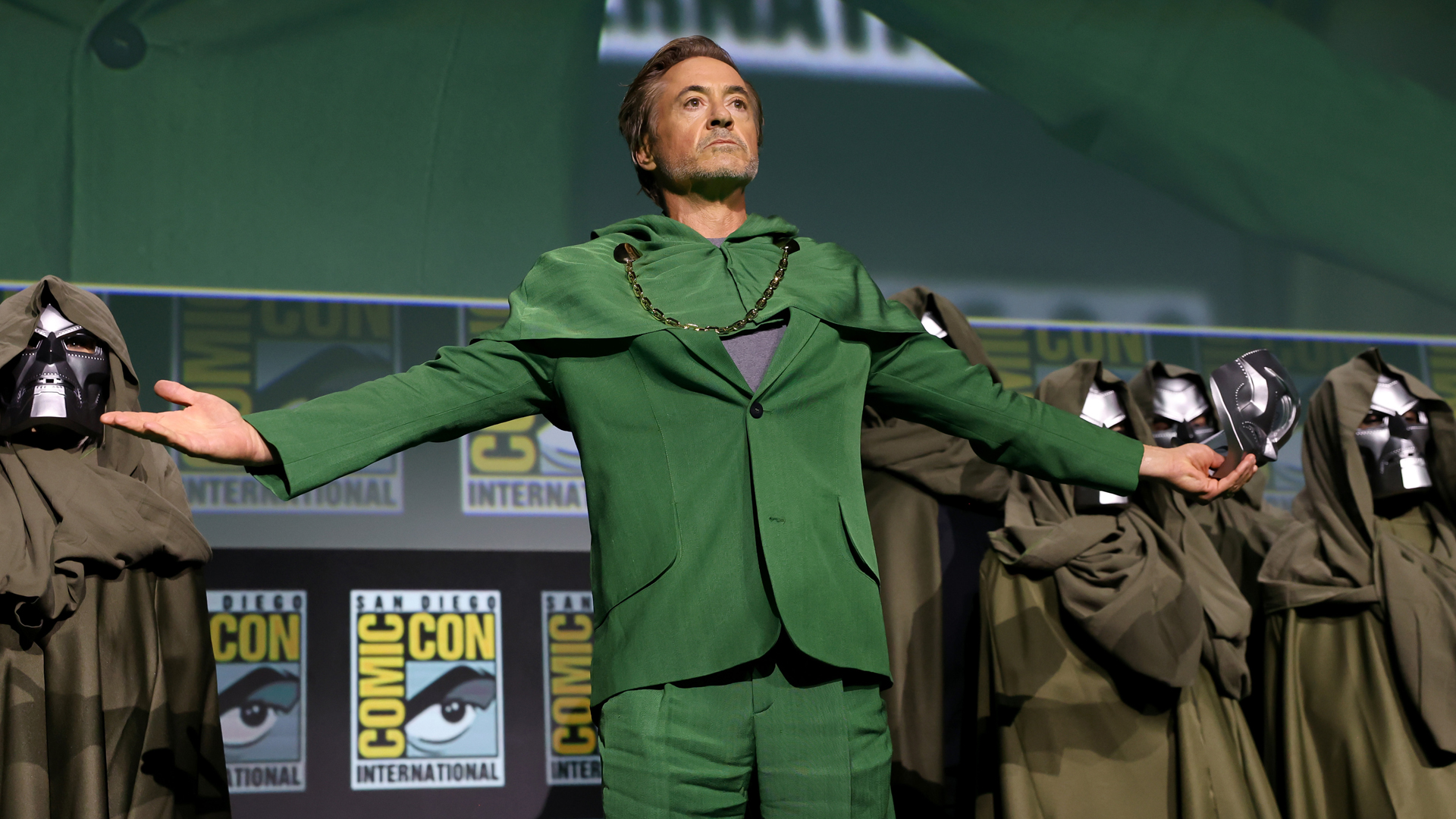Robert Downey Jr. vows there will never be a digital AI replica of him on-screen
Ultron isn't Iron Man's only AI foe

Tony Stark may rely on AI to help build and pilot his Iron Man armor, but actor Robert Downey Jr. will go after any executive thinking to use AI to replicate him for a role. Downey made his feelings clear on a new episode of the “On With Kara Swisher” podcast, where he discussed AI, deepfake technology, and his antipathy toward any effort to recreate him with AI, even after he passes away.
Downey isn't too concerned about future urges at Marvel Studios to insert an AI replica of him into future films without his permission. The temptation is obvious since Downey's most famous role kicked off the Marvel Cinematic Universe and he is even returning to the MCU as Doctor Doom in the upcoming Avengers: Doomsday film. Amusingly, both characters are well known for their use of AI and advanced technology, with Doom, in particular, sending out an endless array of robotic duplicates with AI versions of his mind and personality to carry out his bidding. Still, he trusts that the leadership of the studio won't betray him.
"And to go back to the MCU, I'm not worried about them hijacking my character's soul because there's like three or four guys and gals who make all the decisions there anyway. And they would never do that to me with or without me," Downey said on the podcast.
Host Kara Swisher pointed out that it's more about what will happen after he passes away, but Downey had an answer for that: "Well, you're right, And, I would like to here state that I intend to sue all future executives just on spec," he declared.
“You’ll be dead,” Swisher countered, to which Downey quickly riposted: “But my law firm will still be very active.”
Eternal battle against AI
The Oscar-winner is hardly alone among actors in being wary of AI duplicates, an issue critical to the strike and eventual deal made by the recent Screen Actors Guild (SAG-AFTRA) strikes this year. Downey's view may be bolstered by law thanks to a bill introduced by California legislators prohibiting the unauthorized replication of deceased actors.
On the other hand, some actors seem fine with having AI take up their iconic roles as long as they and their eventual estate approve and are compensated. For instance, James Earl Jones agreed to let Disney use his voice for future Darth Vader projects before his recent passing. His contract details how and when his AI voice clone may be used.
Sign up for breaking news, reviews, opinion, top tech deals, and more.
Jones isn't the only celebrity allowing AI companies to replicate their voice or face. Meta scored deals with many celebrities, including John Cena, Keegan Michael Key, and Kristen Bell, to voice its Meta AI assistant. ElevenLabs did the same with Deepak Chopra for its Reader App. , and reached a deal with the estates of James Dean, Burt Reynolds, Judy Garland, and Sir Laurence Olivier to let it add AI versions of their voices to the app. Not every performer has the resources to push back against the potential AI deepfakes that could be produced. Hence, AI's place in Hollywood was a key sticking point during the strike.
Downey has been immersed in questions of AI and art thanks to his recent turn on Broadway in McNeal. The drama, written by Pulitzer Prize-winning playwright Ayad Akhtar, sees Downey play a famous author battling AI's takeover of creative projects and how artists and audiences should grapple with the implications of the technology. It's not too dissimilar to what Downey said in the interview, including criticizing the way AI developers sometimes hint or outright proclaim that AI is a key to saving creative industries. ChatGPT is no Ultron, but Downey very much opposes some of what AI might do to actors, writers, and other creators just as much as Iron Man fought the murderous AI on the big screen.
You might also like

Eric Hal Schwartz is a freelance writer for TechRadar with more than 15 years of experience covering the intersection of the world and technology. For the last five years, he served as head writer for Voicebot.ai and was on the leading edge of reporting on generative AI and large language models. He's since become an expert on the products of generative AI models, such as OpenAI’s ChatGPT, Anthropic’s Claude, Google Gemini, and every other synthetic media tool. His experience runs the gamut of media, including print, digital, broadcast, and live events. Now, he's continuing to tell the stories people want and need to hear about the rapidly evolving AI space and its impact on their lives. Eric is based in New York City.